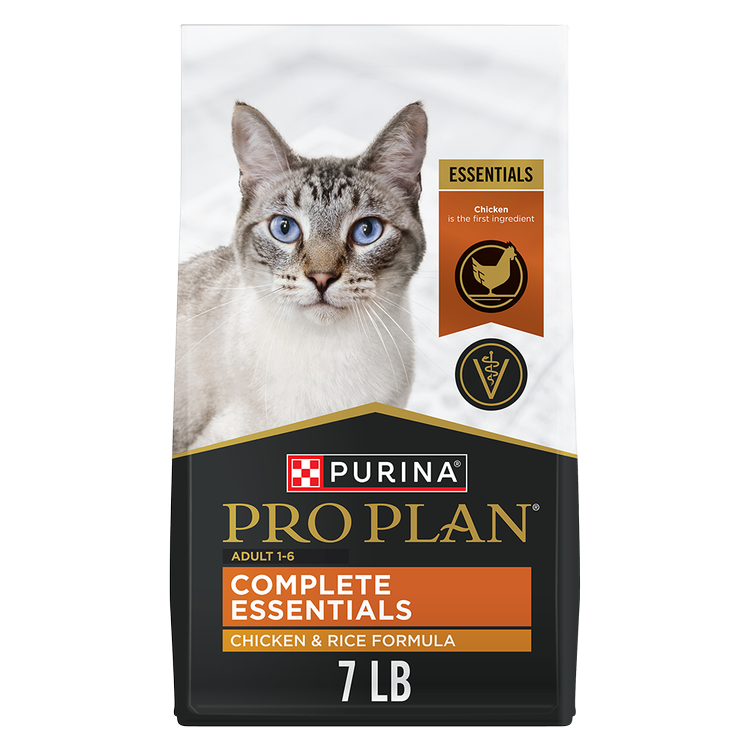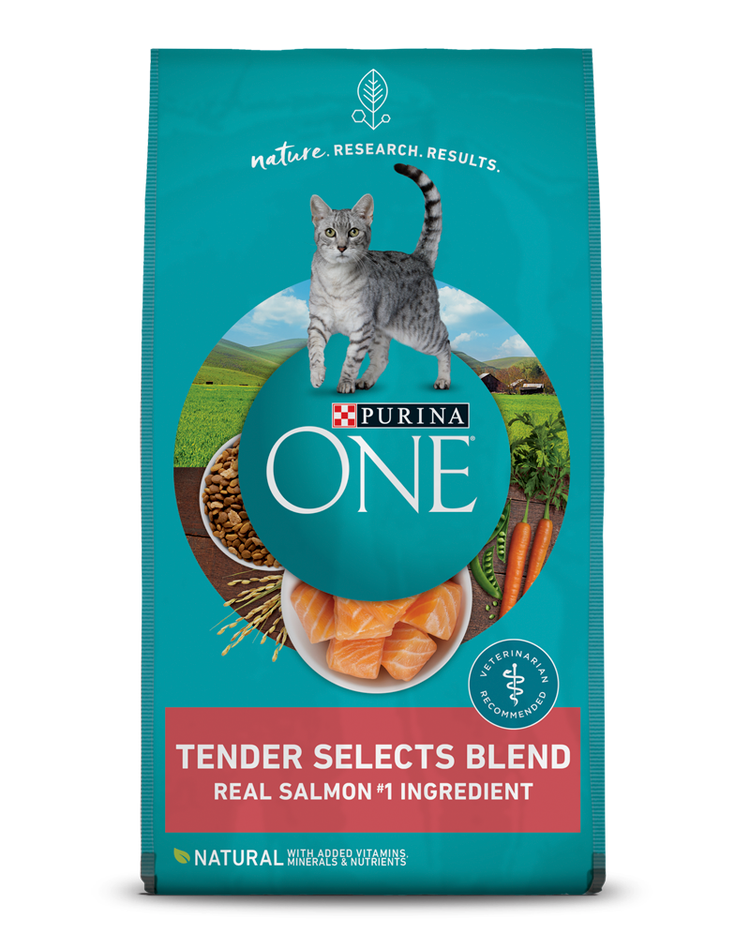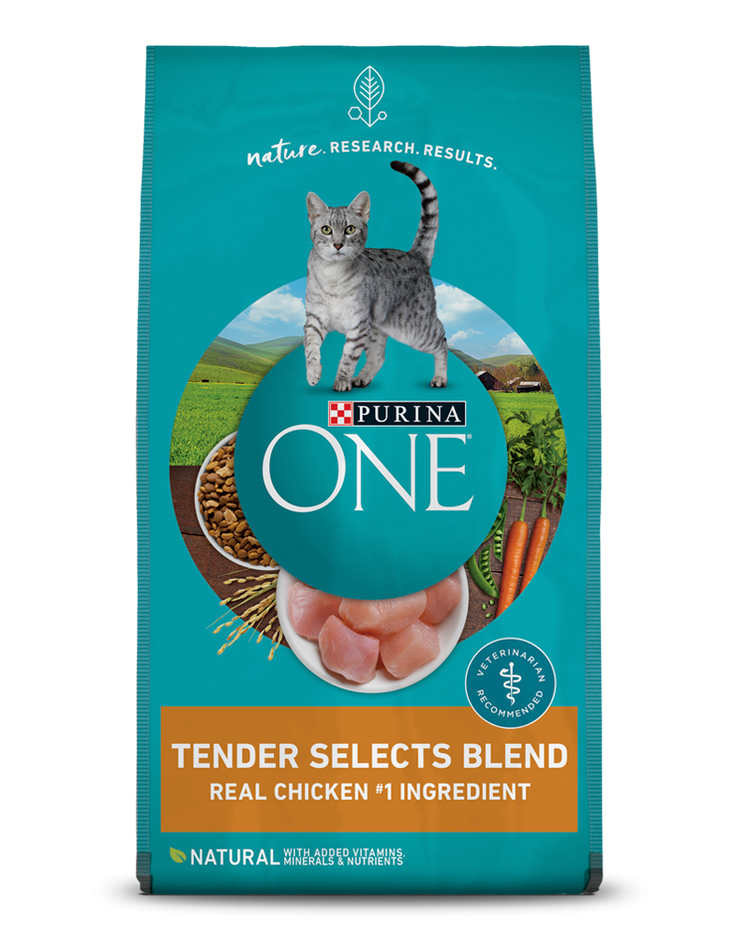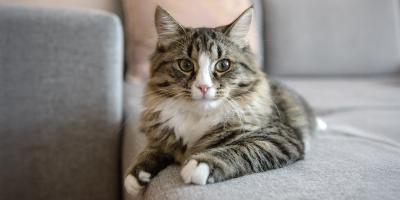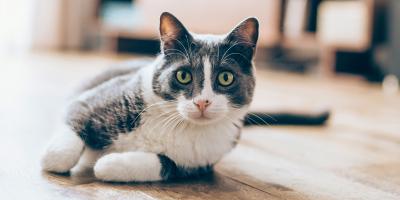Why Do Cats Eat Grass and Throw Up?


Every cat owner has witnessed their cat eating grass occasionally and wondered, Why does my cat eat grass? Most cats will eat grass from time to time for one reason or another.
This behavior isn’t unique to house cats; wild cats and even their relative, the lion, have been known to graze on grass as well. As unpalatable as grass may be for us humans, your cat has a few good reasons to eat it.
Why Do Cats Eat Grass?
Can cats eat grass? Yes, there are a few potential reasons why cats eat grass, although no one knows for sure why they do this. Reasons a cat eats grass may include a favorable taste and mouthfeel, or they may be trying to relieve an upset stomach.
Although some may speculate, they are consuming grass to make up for a nutrient deficiency, this is unlikely if the cat is consuming a complete and balanced diet, according to scientific studies. If you’re worried your cat might not be getting enough nutrients, it’s a good idea to reach out to your veterinarian to ensure your cat is getting a complete and balanced cat food to support their everyday needs.
It’s more likely that eating grass is an instinctive behavior. Cats used to eat grass to protect themselves against intestinal parasites. Domesticated cats do not need this protection, but the drive to eat grass might linger.
Grass can also relieve an upset stomach in cats. If you’ve ever witnessed a cat eating grass and vomiting, you might be surprised to know they’re likely doing it as an instinctual reaction to relieve their stomach upset. Cats don’t have the necessary enzymes to digest a large amount of grass, which is why it can make them sick.
After eating grass and throwing up, your cat will likely clear their stomach of other things like hairballs, feathers, parasites, or bones, which can irritate the digestive tract or even cause more serious problems.
In addition, grass may work as a natural laxative for cats. Like people, cats can run into certain digestive issues. In these instances, cats sometimes eat grass to help them break down and pass things like fur from grooming to ease constipation.
Is it Okay for Cats to Eat Grass?
It’s okay for cats to eat grass in moderation, as long as it hasn’t been treated with pesticides or herbicides, and if only small amounts have been consumed, or if it hasn't been near a poisonous plant like a lily or a daffodil. If your cat eats grass often, however, it could get stuck in her nasal chambers and cause her to sneeze excessively. If this happens, you’ll need to contact your veterinarian immediately to have it manually removed. Grass can also get stuck in the digestive tract.
If your cat is in the habit of snacking on plants and grass, it’s essential to make sure all your houseplants are non-toxic. Certain popular houseplants can be toxic to cats, including poinsettias and lilies. These two and several others are poisonous to cats and can cause a mild or even severe reaction.
If your cat ingests a poisonous plant, always take them to the veterinarian for treatment or call the Animal Poison Control Center (APCC) at (888) 426-4435. They’re available 24/7, including holidays, though they may charge a fee for any services provided.
If there is any doubt in your mind about the grass your cat consumed, you should call your vet. Call the vet immediately if there are any sudden behavioral changes or signs of sickness, such as vomiting, diarrhea, or a change in their litter box habits.
How to Stop Your Cat from Eating Grass and Throwing Up
As many cat owners will tell you, there isn’t always an apparent rhyme or reason to some of their unusual behavior. In some cases, cats eat grass simply because they enjoy it and maybe enjoy having a few more greens in their diet. In other cases, eating grass constantly might be a sign of boredom, and you might need to look into providing your cat with more high-intensity playtime and mental and physical stimulation, like food puzzles and bonding time with you.
To make enrichment easier, the HAPPi program on the MyPurina Pet Perks app offers daily suggestions for cat enrichment and bonding activities. Our cat experts suggest spending a week bumping up play, attention, and enrichment to see a difference in your cat’s behavior.
If you want to ensure your cat is only eating grass that’s safe, you can purchase pots of grass, which will give your cat a personal patch to graze on as a snack. You may be able to find organic wheat or oat grass in your supermarket, as some people like to add it to their smoothies. Or you might look for wheat or oat grass growing kits for in-home use at a specialty retailer. This will not only satisfy their need to nibble on grass, but it can also prevent them from chomping on your favorite houseplants.
Another option is seeing if your cat likes having vegetables, such as parsley or lettuce, with their daily meals. If your cat is eating grass and vomiting hairballs, the best solution is to ensure you’re feeding him or her a hairball control formula with higher fiber content.
Get more information and advice from our pet experts, or visit our Pet Expertise page.

Be Rewarded for Your Purina Purchases
Earn and redeem points for Purina products with myPurina app.

